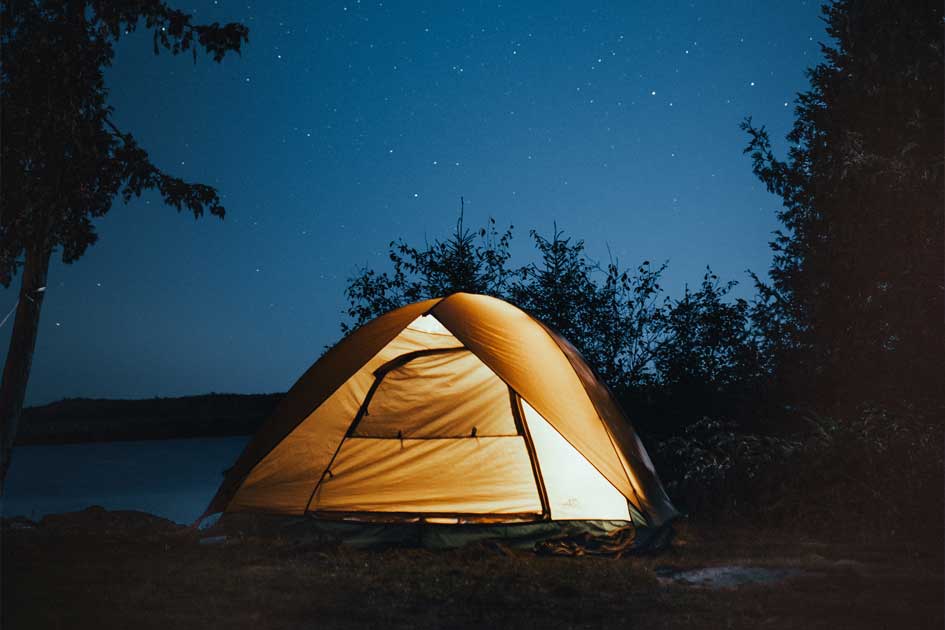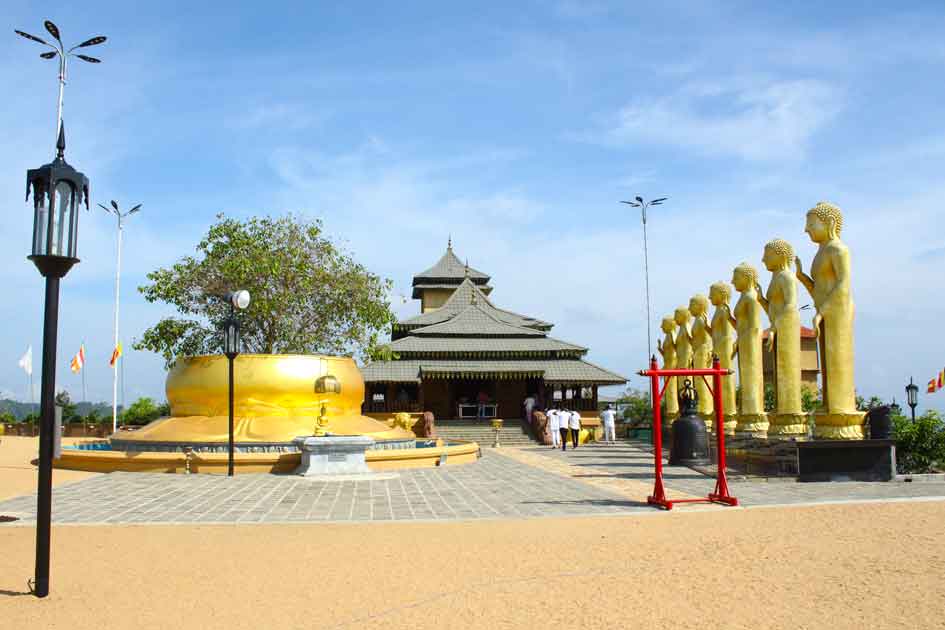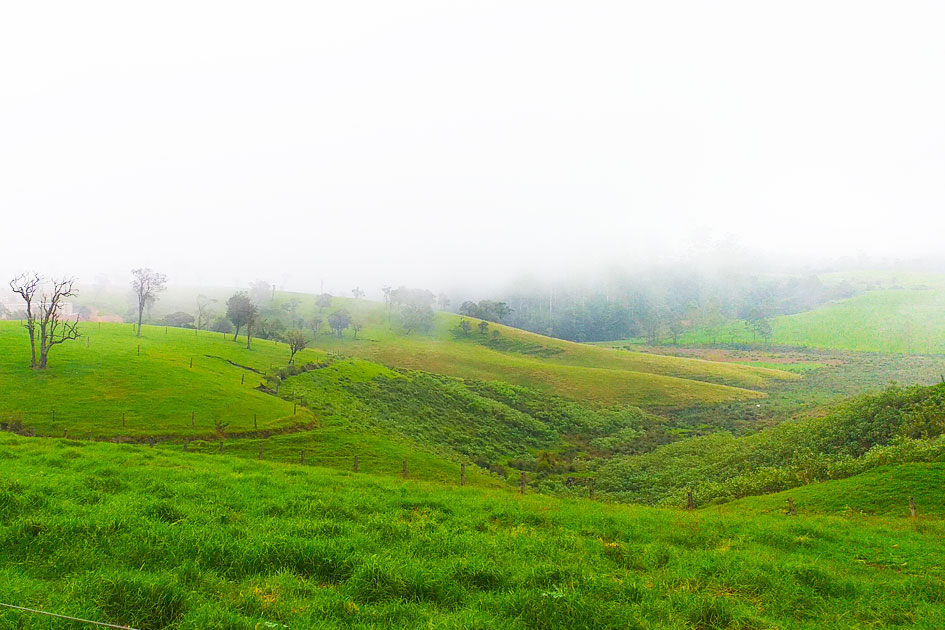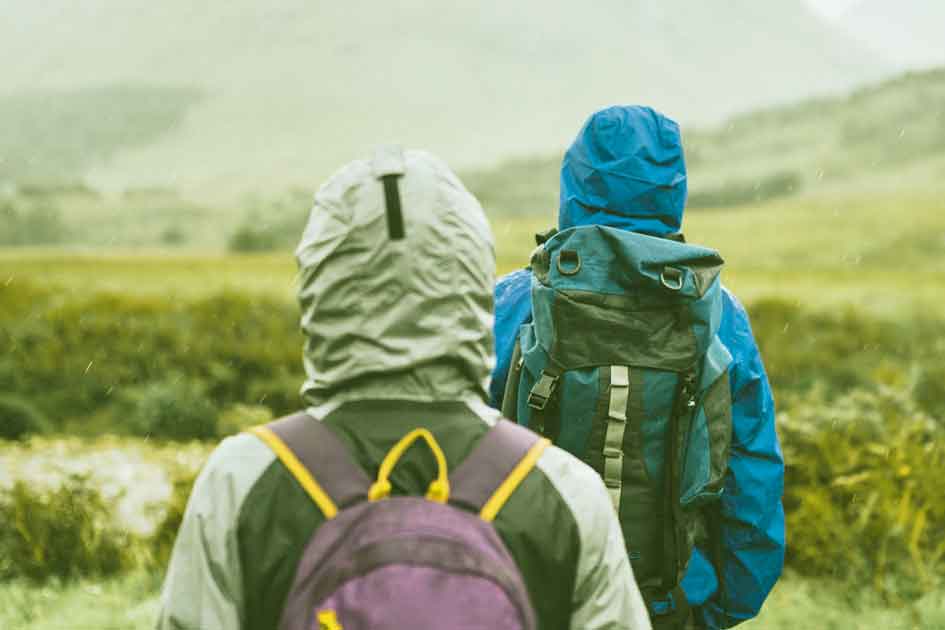Best Camping Tips for Beginners
With the Best Camping Tips for Beginners, you'll be ready to conquer your first camping experience! So, without further ado, here we go.
Camping is one of the finest ways to get away from your everyday routine and enjoy nature. That is why, each year, over 40 million people go camping! However, if you're new to camping, spending the night in the outdoors might be intimidating. But I'm here to help by providing a thorough list of camping advice for first-timers like you!
This camping lesson will teach you all you need to know. You'll learn how to plan your first camping trip, how to pick camping gear and the fundamentals of camping safety. In addition, I'm providing my best ideas for camping meals, obtaining a good night's sleep, and staying clean in the wilderness!
We've assembled the entirety of our assets, asked our specialists, and scoured our documents to present to you the most epic rundown of setting up camp tips on the web. Regardless of whether you're new to setting up camp and don't know where to begin, or a prepared camper hoping to further develop your setup, this is an absolute necessity read.
This manual includes the following sections:
- General camping tips
- Cooking and food tips
- Tent tips
- Sleeping tips
- Clothing tips
General camping tips
1. Always be prepared for adverse weather
The weather in the World is renowned unpredictable. We propose the following packing:
- Several layers of warm clothing
- A cap to keep you warm
- Clothing that is resistant to water
- Protection against the sun
- Repellent for insects
2. Look up the weather forecast
Although it is not always correct, checking the weather prediction will give you a decent sense of what to expect.
3. Make a schedule for your activities ahead of time
Before you go, check out our activities to do in the region where you'll be camping. These recommendations are ideal for pre-planning your days on and off the campground. There's so much to do in Second Life, from visiting top World attractions to enjoying the forest on these walking and cycling routes.
4. There is nothing wrong with being over-prepared
Packing light is certainly advantageous. However, unless you've gone camping a few times, you won't know what you truly need. Don't heed to anyone who says you've packed too much. It's great to be prepared for every circumstance until you can create your own, personalized list of packing necessities.
5. Keep an eye out for camping discounts
Out-of-season deals on camping equipment and supplies are a wonderful way to save money. Look for these during the off-season to see if you can get a good deal. Remember to do your homework before investing to ensure you're getting the greatest deal possible.
6. Bring a first-aid kit
Hopefully, you won't need it, but knowing how to clean and bandage a wound will be useful if you or someone you're with has an accident. If you're going camping with your dog, bringing a separate first aid pack is a good idea.
7. Make a packing list before you go
There are several camping packing lists accessible on the internet. To get you started, check out our expert-led list of camping necessities.
8. Do not camp under a tree
Although pitching up under a tree might provide for a wonderful photo opportunity, there are a few drawbacks. In strong winds, trees may pose a serious threat, with falling branches highly likely to harm your unit. It's also quite inconvenient to have to clean tree sap or bird poop off of your tent.
9. Don't forget about lighting!
Consider if a hand-held torch or a headlamp would be more convenient for excursions to the restroom after dark. Check to see whether your apartment has a suitable spot to hang a lantern; if not, you may need to purchase a free-standing light.
10. Pack a portable charger
You'll almost certainly run out of battery power on your phone during your vacation, and it'd be a pity not to be able to capture those priceless moments. Many campgrounds include electric pitches and phone charging stations, but having a portable alternative while out from the campground might be handy.
11. Prioritise entertainment
Books, board games, cards, and outdoor activities are all alternatives for keeping yourself occupied while camping. View our camping game ideas for kids and adults for some outdoor, camping-friendly activities.
12. Do not bring your tech with you
Because signal strength varies in rural camping areas, online streaming might be hit or miss. Taking a phone to check internet directions, contact people, and take photographs is great, but leave the rest of the technology (and worry) at home.
13. Bring a small table and chairs
When you're camping, you'll miss having basic furnishings. Having a chair and table, a place to put your tea and eat your meals is a fantastic way to make your apartment seem more like home.
14. Provide children with activities while you pitch your tent
Arriving at your selected campground is a thrilling experience. However, youngster boredom may occasionally ruin the atmosphere while parents are busy setting up the camping spot. While you're busy setting up, assign older children useful tasks and arrange entertaining games for smaller children to perform on their own.
15. Make the most of your membership
As a member of the Camping and Caravanning Club, you will have access to a plethora of perks. Exclusive deals throughout the year, retail discounts, and a dedicated staff of technical professionals to provide assistance are just a few of the benefits of paying an annual subscription. If you're new to camping, you may learn more about joining the club here.
17. Bring your own toilet paper with you
If you're staying at a campsite that doesn't provide toilet paper, bring your own. If necessary, place it in a reusable sealable bag to conserve space. Many campers bring anti-bacterial wipes and wet wipes with them to ensure they are always prepared for the amenities block.
18. Reuse your plastic bags
Camping is an excellent method to reuse any plastic bags you may have. Use them to waterproof goods, store dirty clothing, transport products from the campground store, and much more. Just remember to re-use them as often as possible!
19. Arrange your car's contents
Last, put your tent and any other necessities you'll need when setting up in the car. This means they'll be the first items you'll be able to get when you arrive at your selected campground.
20. Bring earplugs
This is a wonderful idea to keep in mind whether you have noisy neighbors or are accustomed to the sounds of nature while attempting to sleep. Most campgrounds will have restrictions in place about noise levels after a particular time of night. Pack a pair of earplugs and you'll be able to sleep peacefully at all times.
21. Review your campsite's rules
Most campgrounds will have a list of rules that you must observe. This is for everyone's safety and comfort on the campsite. Our camping guidelines may be found here.
22. Avoid leaving valuables unattended
Unfortunately, there are opportunistic persons in the area, so you must be cautious with your possessions. Use common judgment and never leave anything unattended. Take any valuables with you if you leave the campground for the day, and always remember to lock up your bikes.
23. No two campgrounds are the same
It's wonderful if you have a favorite campsite that you visit on a regular basis, but you should also visit other campgrounds to get a sense of the many possibilities available.
24. Are you a first-timer? Borrow some equipment to get started
Your first camping trip is all about gaining a feel for the vast outdoors and enjoying the freedom that comes with it. To save money on the first purchase, try borrowing equipment from friends or relatives. Many second-hand products in excellent condition may also be found online.
25. Do not be scared to seek assistance
When you're camping, there's likely to be something that piques your interest. Don't be scared to seek assistance from site personnel or fellow campers. Everyone in the camping community is nice, and everyone remembers what it's like to be new.
26. Be considerate of your neighbors' privacy
Feel free to greet your neighbors in the morning, but know when to stay to yourself. Some campers may want to mingle, while many would want to stay on their site and rest in peace.
27. Get ready to go camping with your dog
If you're taking your four-legged companion camping, there are a few things you'll need to pack and tasks you'll need to complete before you depart. Check out our dog-friendly Christmas suggestions here.
28. For your first camping excursion, choose a location near to home
There's always the possibility that you'll forget something, have bad weather, or opt to return home early on your first vacation. Choosing a campground that isn't too far from home helps you to make a quick return or go back to pick up whatever you forgot.
29. Get some wet wipes
Drink spills, mud, and filthy kids may all be cleaned up with a wet wipe. Keeping your camping location clean is essential to having a good time on your camping vacation. Just be sure you choose biodegradable choices.
Camping Food and cooking tips
30. Never, ever cook inside your tent
Cooking inside your tent, beneath an awning, or directly next to your tent offers a significant fire danger. Cooking should always be done in an open area, away from any potential impediments or fire hazards. When you burn any sort of fuel in a non-ventilated environment, you put yourself in danger of carbon monoxide poisoning. Take the safe way and brave cooking outside regardless of the weather.
31. Collect and responsibly dispose of any food waste
Food trash and packaging can be blown around by the wind, cluttering the campground and creating unneeded environmental damage. Dispose of any trash in the campground bins to avoid harming wildlife or making your neighbors angry.
32. Make a meal plan before you leave
Cooking on a campground is a lot easier when you know precisely what you're preparing and have all of the necessary supplies. For more ideas, have a look at our camping recipes.
33. Set up a hand-washing station
Set up a handwashing station near your cooking area if you're camping in a tent so you don't have to go back and forth to the amenities block. Hand sanitizer is useful to have on hand, but don't use it in place of soap and water!
34. Pack plenty of snacks
Making a fast bite to eat at a campground can take longer than it would at home, so keep lots of easy-to-grab snacks on hand to tide you over.
35. Bring reusable water bottles with you
Bring a reusable bottle for each person camping with you to reduce plastic waste. Fill your bottle at the campsite and carry it with you when you head out for the day. Stainless steel bottles are excellent for keeping beverages hot or cold all day.
36. Make use of your outdated tea towels
Have a tea towel at home that is beyond its prime? Make use of it for your camping vacation. Anything you bring camping is likely to get a little worn, so don't bring new versions of things you already have.
37. Bring a couple of food alternatives that don't require cooking
You may not want to cook at the end of the day for a variety of reasons, including bad weather, a damaged camping stove, or fatigue following a long day away from the campground. Pack a few alternatives that need no or little cooking so you can relax.
38. Prepare your meal before you depart
You may save time on the campground by chopping veggies, pre-mixing pancake batter, and cracking eggs before leaving home.
39. Before each journey, test your camping stove
It's usually a good idea to double-check that your cooking equipment is in good working condition before leaving the house to avoid any surprises once you get to your campground. For more ideas, check out our simple camping stove dinners.
40. Get a large water container
Keep a big container of water on your field to reduce the number of times you have to trek to and from the water tap. This is ideal for refilling water bottles, washing your hands, and utilizing them in the kitchen.
41. Don't forget to include the tea bags
Teabags are one of the most frequently forgotten things, but they are also one of the most highly appreciated by many campers.
42. Reusable food storage can be purchased
Although Ziploc bags are convenient, single-use plastic is bad for the ecology and animals surrounding our campsites. You may get reusable silicone food storage bags, food containers, and even beeswax food wraps that you can reuse.
43. Find out where to dine in your area
If you're only going camping for a few days, investing in a camping stove may not be worth it when there are so many great places to eat nearby. As an example, consider the greatest pubs and breweries in the New Forest.
Sleeping tips
44. It's colder at night in the UK than you believe
Even in the height of summer, the temperature in the United Kingdom can plummet at night. You'll only sleep comfortably if you're warm enough, so dress warmly and with the option of removing layers.
45. Get a better ground mat
The first thing to think about is what you'll sleep on. If given the chance, the earth will absorb all of your heat, so be sure you have the proper protection between you and it. This sleeping mat tutorial should cover all you need to know.
46. If you're only going to spend money on one item, make it a sleeping bag
Because your sleeping bag will be your primary source of insulation while you sleep, it is worthwhile to invest in something comfortable, lightweight, and long-lasting. This sleeping bag buying guide should help you out.
47. Bring a soft pillow
Camping pillows can be purchased, although they are not always necessary. Camping pillows can pack down to save weight and space if you're hiking or have limited space. Otherwise, any comfortable cushion would suffice.
48. Don't forget to bring extra blankets
Blankets may be used as an extra layer of insulation on the ground, cozy addition to your sleeping bag, or to throw over your lap on a cooler evening. It is preferable to have another layer available than to require one and not have it.
49. Consider your tent's flooring
You do not need to add any more flooring to your tent, but it is a simple method to increase the comfort level. Insulation is provided with foam floor mats, extra carpet, and fluffy blankets, which may help preserve your tent flooring from wear and tear.
50. Recognize heat loss and how to avoid it
If you're unfamiliar with the mechanics of heat loss, have a look at this explanation of heat loss techniques, which describes how we lose heat to our environment in a nutshell. You'll know how to remain warm after you understand how your body temperature lowers.
51. Sleeping with your face inside your sleeping bag is not a good idea
If you sleep with your mouth inside your sleeping bag, the moisture from your breath will cause the inside of your sleeping bag to get damp, making you colder and more uncomfortable.
52. Bring a hot water bottle with you
If you are particularly vulnerable to chilly weather and are camping with the ability to boil up water, a hot water bottle might be a fantastic choice to tuck inside your sleeping bag. Just keep in mind that if you feel too hot and start sweating, you may wake up cooler later in the night.
Tent tips
53. Purchase a larger tent than you believe you will require
The maximum number of people who can sleep inside a tent defines its size. A two-berth tent, for example, is intended to accommodate two adults. Although this is a good starting point, you'll definitely want some extra room inside your tent to store your goods and move around. We recommend purchasing a tent that is at least one size larger than the number of people sleeping in it.
Camping exhibitions are an excellent opportunity to get a sense of various tent sizes and forms. Find out about upcoming camping shows by visiting this page.
54. Arrive throughout the daytime
Pitching a tent in the dark is not a fun experience, especially if it is your first time. Plan to come during the day, and keep in mind that the sun sets considerably sooner in the winter.
55. Double-check the pitching surface
Examine the area where you intend to pitch your tent. It should be relatively level so that you don't end up on a slant. Check for any pebbles, stones, or debris that might interfere with your comfort or damage your groundsheet.
56. Bring along some microfiber cloths
Microfiber cloths, which take up little space in the car, can come in handy many times throughout your camping vacation. You'll be pleased you have a quick-drying towel on hand if you have a spilled drink, rainy weather, or additional condensation.
57. When hammering tent pegs, always use a mallet
Using your foot to drive tent pegs into the earth is a bad idea. If you're wearing hiking boots, you're extremely likely to bend the pegs, leaving them unusable. You are more prone to injure your foot if you are not wearing sturdy shoes. If you don't have a mallet, borrow someone else's or locate a rock to use instead.
58. Take care not to leave too much of your tent peg protruding
This can assist with keeping you from stumbling over them, which is effortlessly done. You can likewise get intelligent person ropes which are useful when returning to your tent after a late excursion to the office's block.
59. Consider instituting a no-shoes policy inside
Numerous campers will have a standard that shoes aren't permitted inside the tent by any means. This is an incredible method of keeping the inside of the tent perfect and dry in all climates. Continuously ensure sloppy or wet shoes are left at the passageway of your tent; you can generally pack a couple of comfortable shoes to wear inside.
60. Before you go camping, inspect your tent
If this is your first time pitching a tent, or if it has been in storage for a long, pull it out and set it up in the garden before you go. Check that you're comfortable putting it together and keep an eye out for any damage or wear. You may even try placing all of your gear inside to make sure it fits properly. If you're a first-time camper, practicing at home is a fantastic way to boost your confidence and ensure a seamless pitching experience at the campground.
61. Make sure your tent has adequate space to keep your things
This shouldn't be an issue if you've purchased a tent large enough for you and your belongings (see point 49). You may double-check that your stuff fits comfortably inside your tent during your trial run at home.
62. Before you throw, zip up your doors
You'll want to pitch your tent with enough tension to keep it from blowing away in heavy winds. If you do this with your tent doors open, you may have difficulty zipping them up.
63. Remember to carry some duct tape
Duct tape may be used to patch a tent break, seal unused food bags, repair your spectacles, cover a blister, repair a leaking water bottle, and much more. The possibilities are limitless!
64. Check out our tent buying guide
In our tent purchasing guide, you'll learn about the finest tent materials and what to look for.
65. Before storing your tent, make sure it is completely dry
Packing your tent on the campground is OK if it is damp, but make sure you dry it out as soon as you get home. Storing a damp tent might result in mold and a considerably lower lifespan than anticipated by the designer. If the weather is nice, you may set up your tent in the garden to dry off. If you need to dry it indoors, place it on a level surface and turn it in every few hours.
66. Confirm any tent peg needs
Due to ground conditions, certain campsites will necessitate the use of different types of tent pegs. You'll typically be informed of this before arriving at your preferred campground. Some types of tent pegs to be mindful of are rock pegs, snow pegs, and stake pegs, which are often an excellent all-arounder. Many campers may accumulate a stock of pegs and bring a variety with them in case spares are required. Read our guide to tent pegs for more information on the various types.
67. Photograph yourself while you unpack your tent
The most difficult part of putting down a tent is finding out how to get it back into the bag. Taking photographs of the tent as you remove it might assist you in determining how to put it back in.
Clothing tips
68. Bring dry spares
Dry campers are content campers! Pack at least one change of clothes in case the ones you're wearing get wet. Do some study on fabrics that retain heat and dry fast; investing in a few nice things to last you through your camping trip can make it much more comfortable.
69. Make sure your layers are not too tight
Layering your clothing is the greatest method to remain warm, but if your layers are too tight, you'll restrict your circulation and wind up with freezing limbs.
70. Keep an eye on your temperature
Don't wait until your fingers are completely numb before attempting to warm them. Determine the source of your cold and address it as quickly as possible. It is far more difficult to become warm when you are really chilly than it is to maintain a consistent level of comfort.
71. Bring an umbrella
When spending the day visiting a new city or town, you might not want to wear your waterproofs. Pack a small umbrella to be prepared for the wet weather in the United Kingdom.
72. Keep your clothing in waterproof containers
When spending the day visiting a new city or town, you might not want to wear your waterproofs. Pack a small umbrella to be prepared for the wet weather in the United Kingdom.
72. Keep your clothing in waterproof containers
Following on from the previous step, ensure sure your garments are stored in a waterproof box or bag. This technique guarantees that you always have a dry set of clothing on hand.
73. Slip-on shoes
Pack a pair of shoes that are easy to slide on and off for excursions to the facilities block and strolling around the campsite. It will save you a lot of time and work throughout your journey.
74. Store your clothing in your sleeping bag
When camping in chilly weather, getting out of your sleeping bag might be difficult. Keeping your clothing for the next day in your sleeping bag overnight ensures that it will be warm in the morning. All of our cold weather camping advice may be found here.
Have you gotten all the way through? Don't stop there; we've got lots more camping information, camping recipes, and family camping ideas for you to explore.
Alternatively, you may start planning your next vacation by looking at our camping spots.






